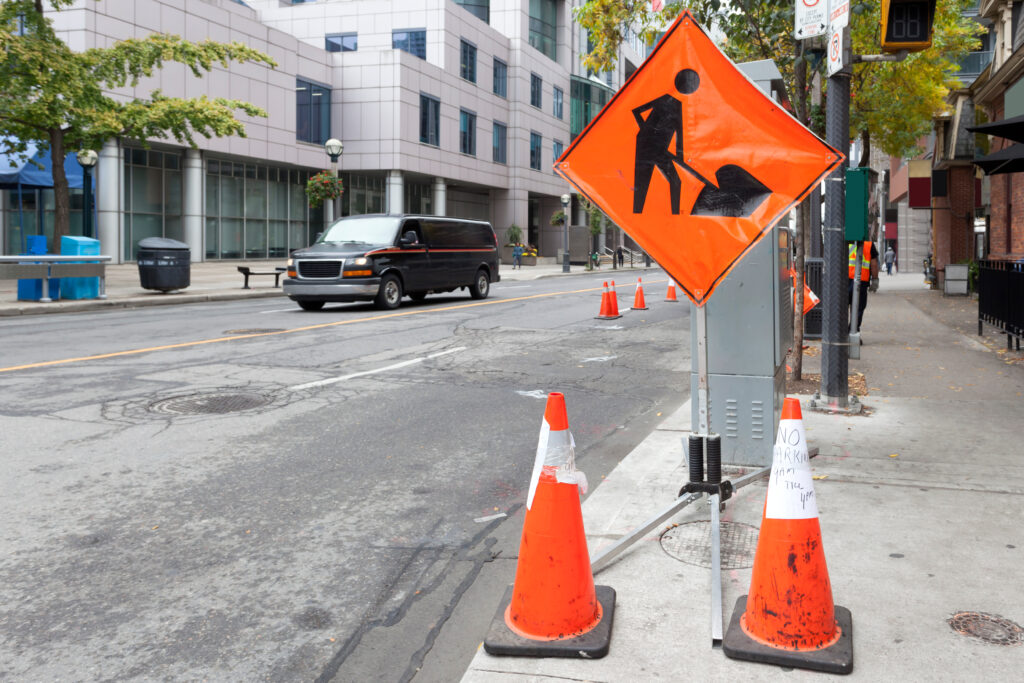
News
Roads & Paving
QR codes, more support proposed for Toronto work zones
October 24, 2023 By Rock to Road Staff
 Construction site in the city of Toronto. Photo credit: philipus/ Adobe Stock
Construction site in the city of Toronto. Photo credit: philipus/ Adobe Stock TORONTO — The City of Toronto is hoping to expand construction hubs and introduce QR codes and other technology to help alleviate congestion and make streets easier to navigate for road crews and users alike.
Traffic Manager Roger Browne will introduce a report to the infrastructure and environment committee this week outlining staff proposals for dealing with the “significant” increase in traffic, events and construction projects across the city, causing extreme delays.
Around 40,000 permits are issued in Toronto each year for rights-of-way related to construction or events. Earlier this year a report from transportation analytic firm Inrix listed Toronto as the third most congested city in North America.
“This situation emphasizes the demand for better coordination of access to the right-of-way and the need for improved traffic management overall to help mitigate the impacts of congestion while maintaining safety for all road users,” Barbara Gray, general manager of transportation services, said in the report.
The report makes numerous recommendations for leveraging technology to help provide construction crews, city officials and road users a better experience.
This includes the development of a new online portal for permit applications, allowing event organizers or construction companies to apply up to a year in advance. It will also allow applicants to see existing planned works projects in a map view, making it easier to plan alternate routes, if necessary.
“The new system will also make it far easier and quicker for work zone co-ordination staff to sort, review and approve simple versus more complex application requests,” the report said.
The new application system will also generate a unique QR code the city will require all permit holders to post on site, including construction and works projects.
When scanned with a cell phone, the codes will show information about the work zone including the name of the applicant, the duration and nature of the road closure and a 24/7 emergency contact number.
The city is also recommending an increase to the number and size of construction hubs.
The hubs identify areas with multiple, overlapping construction projects and charge premium application fees to help cover the costs of more traffic control and safety measures in those areas.
Staff are recommending expansion of four of the six current hubs, with an addition of three new hubs, for a total of nine. Hubs being recommended for expansion are the Downtown, East Harbour, Lake Shore West, and Yonge-Eglington construction hubs.
The expansion of the hubs will mean increased fees for contractors working in those areas to help the city cover costs of expanded support services in the form of enhanced work zone co-ordination, traffic management planning and communication.
The city hopes to provide better work zone support by creating new staff positions to co-ordinate right-of-way access and construction hubs.
The report recommends hiring at least one senior project manager construction co-ordinator for each member of council, with additional work zone staff providing field support. Transportation Service Officers would also be reassigned to provide the new roles permit enforcement support.
The report also outlined plans for increased use of smart signals, additional traffic management for TTC and GO surface transit routes and establishing a dedicated traffic event management planning team.
The full report can be viewed here and will be presented to committee on Oct. 25.
Print this page